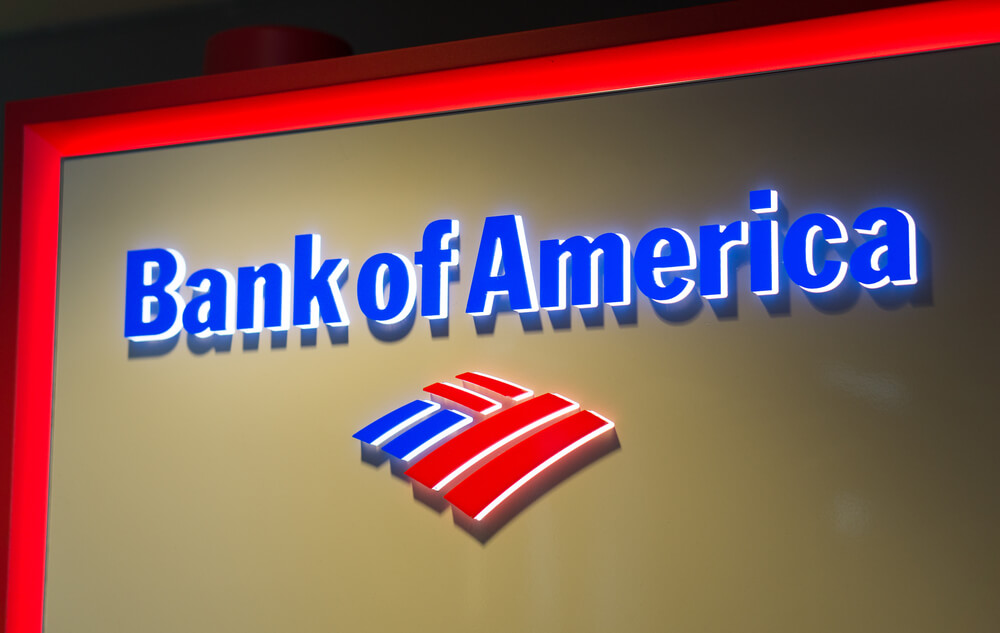Today, we’re looking at one of the Oracle of Omaha’s favorite companies.
Warren Buffett and his conglomerate, Berkshire Hathaway, own 925 million shares worth about $23 billion at today’s prices.
After Apple Inc. (Nasdaq: AAPL), this stock makes up about 11% of Buffett’s publicly-traded stock portfolio.
We’re talking about the financial giant Bank of America Corp. (NYSE: BAC).
This isn’t the easiest environment for banks. With the Federal Reserve keeping interest rates pegged firmly at zero, the sector faces significant headwinds.
With rates at zero, banks earn almost nothing on their cash. (Normally, banks invest their excess deposits from customers like you and me. But that’s no longer profitable.)
Still, headwinds or not, Bank of America is an interesting stock. Its share price never really recovered after the 2008 meltdown. As I write, it’s sitting at prices first seen in 1996.
We’re now in a different regulatory environment. And BAC may never enjoy the profits it did in the freewheeling 2000s.
But that isn’t a deal breaker. The question is whether, at current prices, BAC looks like a decent bargain. If Buffett likes it, we should at least give it a hard look.
To look at this objectively, let’s use Adam O’Dell’s Green Zone Ratings system to analyze Bank of America’s stock rating.
Bank of America Stock Rating
Bank of America sports an overall rating of 44, putting it in the middle of the pack. Based on our historical analysis, a stock at that rating should perform about in line with the S&P 500 over the next 12 months. Let’s break it down further.
Value — Bank of America rates highly on value, scoring a 71. This means that, by our metrics, BAC is a better bargain that all but 28% of stocks in our universe. Considering the shares trade at 1996 prices and sport a dividend yield close to 3%, that’s not surprising.
Growth — Bank of America also rates well on growth, at 65. This may fall somewhat in coming quarters due to COVID-19 slowing down the creation of new loans. There may also be a higher-than-usual number of bad loans. But the banking sector is in better shape to handle a slowdown this time than it was in 2008. And aggressive government stimulus may keep growth respectably high.
Quality — BAC’s quality rating at 62 isn’t bad, either. “Quality” sounds subjective, but in our rating system, it is based on hard numbers measuring profitability, cash flows, debt levels and capital efficiency. And by our criteria, BAC rates higher than all but 38% of stocks.
Momentum — This is where BAC starts to fall off a little bit. It rates a 50 in momentum. By virtue of not being a tech stock, we shouldn’t be surprised here. The rally since March has been concentrated in large-cap tech names.
Volatility — Volatility is something we generally want to avoid. Lower-volatility stocks tend to outperform over time, and a higher rating here means lower volatility. Bank of America rates a 40 on volatility. While the stock experienced some rocky trading following the coronavirus crash in March, shares have consolidated to the $24 to $27 range over the last three months.
Size — Smaller companies tend to outperform over time. And there’s no getting around how massive Bank of America is. Its market cap is more than $215 billion, and its size rating of effectively 0 reflects that.
Takeaway: I really hate to bet against Buffett. He can certainly call “scoreboard” on me and virtually every other investor alive today.
But based on our own metrics, I don’t see a compelling reason to add shares of Bank of America at this time. Its 44 overall rating firmly places it in the “watch” zone (ratings of 41 to 60) of our Green Zone Ratings system.
So, for now, let’s sit back and see where this financial giant heads next.
Money & Markets contributor Charles Sizemore specializes in income and retirement topics. Charles is a regular on The Bull & The Bear podcast. He is also a frequent guest on CNBC, Bloomberg and Fox Business.
Follow Charles on Twitter @CharlesSizemore.
